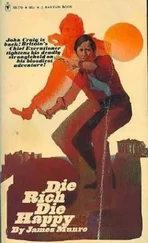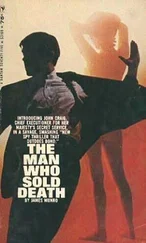James Munro - The Innocent Bystanders
Здесь есть возможность читать онлайн «James Munro - The Innocent Bystanders» весь текст электронной книги совершенно бесплатно (целиком полную версию без сокращений). В некоторых случаях можно слушать аудио, скачать через торрент в формате fb2 и присутствует краткое содержание. Жанр: Старинная литература, на английском языке. Описание произведения, (предисловие) а так же отзывы посетителей доступны на портале библиотеки ЛибКат.
- Название:The Innocent Bystanders
- Автор:
- Жанр:
- Год:неизвестен
- ISBN:нет данных
- Рейтинг книги:4 / 5. Голосов: 1
-
Избранное:Добавить в избранное
- Отзывы:
-
Ваша оценка:
- 80
- 1
- 2
- 3
- 4
- 5
The Innocent Bystanders: краткое содержание, описание и аннотация
Предлагаем к чтению аннотацию, описание, краткое содержание или предисловие (зависит от того, что написал сам автор книги «The Innocent Bystanders»). Если вы не нашли необходимую информацию о книге — напишите в комментариях, мы постараемся отыскать её.
The Innocent Bystanders — читать онлайн бесплатно полную книгу (весь текст) целиком
Ниже представлен текст книги, разбитый по страницам. Система сохранения места последней прочитанной страницы, позволяет с удобством читать онлайн бесплатно книгу «The Innocent Bystanders», без необходимости каждый раз заново искать на чём Вы остановились. Поставьте закладку, и сможете в любой момент перейти на страницу, на которой закончили чтение.
Интервал:
Закладка:
He'd gone into this thing because he was good at it. The fulfillment of each assignment had been the most complete satisfaction he could hope to know. And the enemy hadn't always been Russian or Chinese. There'd been Spaniards, Italians, Germans, Frenchmen, and more than one Englishman. He'd handled them all, just as efficiently. And now he was putting a middle-aged Jew on the auction block and forcing a young Jewess to keep him there. He wondered if Miriam would ever know just how terrible a price she was paying. I must want to live pretty desperately, he thought. When I get out of this I'll take a course in ethics and kill myself.
The girl came aft to sit beside him, moving clumsily against the movement of the ship.
"His arms are hurting him," Miriam said.
"Has he answered all your questions yet?"
"Yes," she said. "But I think he's lying sometimes."
"Go back and tell him I'll let him loose when he tells you the truth."
Beside him, Omar cackled respectfully. The girl got up and went back to Kaplan. Despite her clumsy movements, her body was beautiful again.
"Not like the Benson sheila," said Omar. "A tigress and a deer, eh, effendi?"
Craig grinned at him. "The world's big enough for both kinds," he said.
The darkness came in quickly, and Omar was worried about the lights. Craig took the tiller as he lit them. Slowly they slipped closer to the shore, and then, in the last rays of the sunlight, Craig could see the white line of foam that marked the sunken ruins of Salamis, the speckled gleam of Famagusta in the distance. Craig got to his feet, picked the rifle up from the deck, slipped out the magazine and put it in his pocket. Omar watched without speaking. Next Craig took out his money, counted it, put it back in his pocket, except for ten one-hundred-dollar bills. Still silent, Omar licked his lips, then cried out aloud as Craig tore the ten beautiful pieces of paper in half, dropped one half into his lap.
"Half in advance. I'm going ashore soon," said Craig. "You'll get the rest when I come back. If you behave."
"Yes, effendi," said Omar.
"Are you a good Muslim?" said Craig.
"Pretty good."
"If I were you I would pray a lot while I'm gone. Pray that nobody comes here looking for the shepherd. If they do, they'll kill you. If you try to contact anybody and do a deal, I'll kill you. Staying alone is your only chance of staying alive. Believe that, Omar."
"I do believe it," Omar said.
Craig went forward to the girl then, where she stood beside Kaplan.
"Well?" he asked.
"I think he's telling the truth now."
Craig untied the man's hands, but lashed his ankles together. In Russian he said, "You're too fond of swimming," then to Miriam in English, "I'm going ashore. I shouldn't be long. When I come back I'll have help."
"For him?" She nodded at Kaplan who sat on the deck, head on hands.
"It's possible," said Craig, "but don't count on it."
He told Omar to heave to, and together they manhandled over the side the stone that served as an anchor, then he disappeared into the cabin. When he came back he was naked, his clothes and shoes wrapped in a piece of waterproof and strapped to his head like a turban. The others turned away as he lowered himself into the water, swam in a steady breaststroke toward the lights of the town. The sea was calm and warm, tangy with salt, as placid as a bath, but the feel of it round him was refreshing, shook off his drowsiness. Too soon he reached shallow water and waded ashore to dry himself on a scrap of sailcloth, the only towel on the boat, and dress quickly, in the darkness. He walked along the beach, staying out of reach of the villas' lights, the sight of holiday-makers having one last outdoor drink before dinner, then reached a path that led up to a road, and walked along the road till he found a cafe with one car parked beside it.
He went into the cafe and ordered ouzo. The language he spoke was Greek, but with a Cretan accent, very different from Cypriot. The barman who served him showed a flicker of surprise.
"I thought you Greeks were supposed to wear uniform," he said.
"I'm not in the army," said Craig, and looked round the bar. Its only occupants were three men playing xeri under a portrait of Archbishop Makarios. The barman watched him nervously.
"Things are quiet in Cyprus now," he said. "Most people like them like that."
"I like it," said Craig. "I haven't come for trouble. Just visiting friends."
He put an English pound note on the counter, and the barman gave him his change in Cypriot mils.
"Which is the taxi driver?" Craig asked.
The barman called out "Stephanou," and a fat man put down his cards and gathered up his winnings, then walked out to the cab, the inevitable Mercedes.
Craig finished his ouzo.
"There are lots of UNO patrols now," the barman said. "The civil war is over."
"I won't start it again," said Craig. "I promise."
He went out to the cab, and in his mind he cursed himself, thoroughly and obscenely. It had been a mistake to speak Greek; a bad one. English was a far more natural tongue for Cyprus than the Cretan dialect that was the only Greek he knew. But Greek to him was the language of friendship: when first he'd been a fighting man, most of his comrades were Greeks. He'd lived with them and learned their skills. In the islands still there were men and women who regarded Craig as their brother. So out of his loneliness he'd spoken Greek, and like a damned fool forgotten that Cypriots regarded Greeks from Greece sometimes as heroes, more often as a dangerous nuisance, who took to the mountains and slaughtered in the name of Enosis.
And at one time Cypriots also had gone into the mountains, killed British troops and been killed by them. That had been a bad time for Craig. But the British had gone now, and UNO troops had replaced them: Irish, Canadians, unlikely Swedes, and highly improbable Finns on the island of Venus, drinking brandy at five shillings a bottle and persuading Cypriot Greeks and Cypriot Turks to stop killing each other. Enosis—union with Greece— was somehow forgotten; the island was prosperous, not least because UNO paid its bills so promptly. The Greek and Turkish troops billeted on the island to protect their own nationals were already resented as a threat of war, a threat to prosperity. And Greek civilians were resented even more. They hinted that the days of terror might still come back.
Craig told the driver to head toward the port, which was the Turkish quarter.
"Greeks can't go there," the driver said.
"I'm not a Greek," said Craig. "I'm an American. My father came from Heraklion."
"Oh, an American." The driver was delighted, and all at once relaxed. "Why do you want to go to the port? Whisky—girls? We got plenty in our own bars."
"I want to look at it," said Craig. The driver shrugged, a comprehensive movement involving his whole torso, completely Hellene, that said more clearly than words that Americans made their own rules as they went along. Craig watched as they drove through the new town, Varosha, past the smart bars, tavemas, souvenir shops, then into the older town of cheap bars and night clubs, to the oldest Famagusta of all.
"This'U do," he said, and remembering he was an American, gave the driver too much money. When he got out the driver roared off at once—to his favorite cafe, Craig hoped, to tell a worried barman to stop worrying.
He looked at the dark bastion in front of him. The Venetians had built that, more than four hundred years before: a staggering achievement in military architecture, massive yet shapely towers and walls built to keep the Turks out of Cyprus. For Cyprus was rich, and Venice had needed the money: but the Turks had got in even so, and flayed the Venetian commander alive. Craig thought that Omar would have been proud of his ancestors. Their descendants, huddled and restricted inside the walls, he would have had no time for. Every single one of them was poor.
Читать дальшеИнтервал:
Закладка:
Похожие книги на «The Innocent Bystanders»
Представляем Вашему вниманию похожие книги на «The Innocent Bystanders» списком для выбора. Мы отобрали схожую по названию и смыслу литературу в надежде предоставить читателям больше вариантов отыскать новые, интересные, ещё непрочитанные произведения.
Обсуждение, отзывы о книге «The Innocent Bystanders» и просто собственные мнения читателей. Оставьте ваши комментарии, напишите, что Вы думаете о произведении, его смысле или главных героях. Укажите что конкретно понравилось, а что нет, и почему Вы так считаете.












